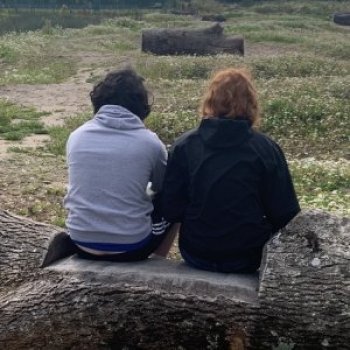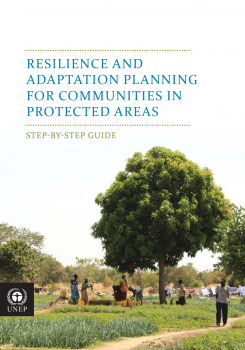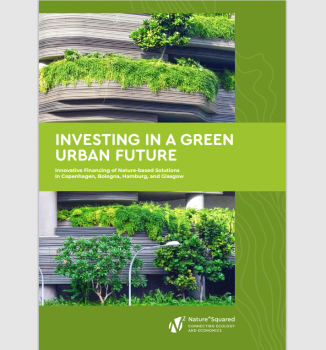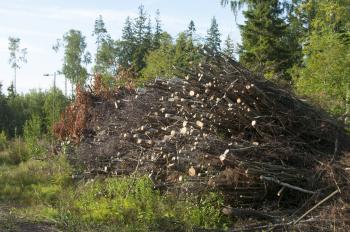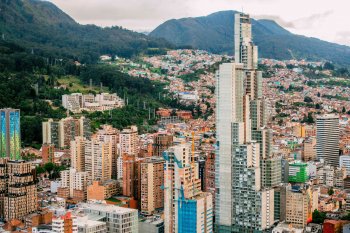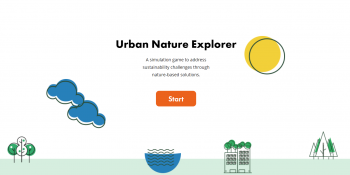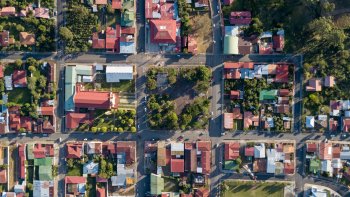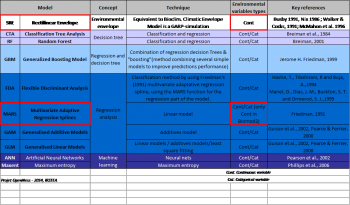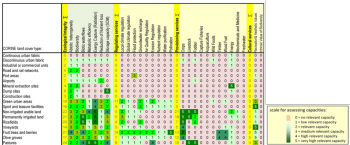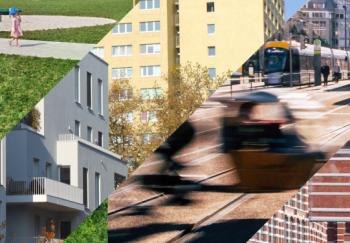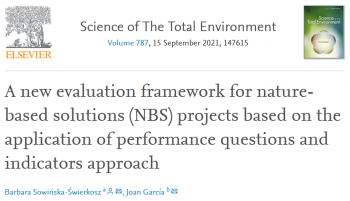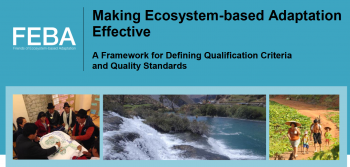The impact of exposure to green or bluespace on dietary intake and food choices among adults—A systematic literature review
Extensive research has shown that spending time in natural greenspaces has a positive impact on health. However, there is limited evidence regarding potential factors that may influence these effects. This review aimed to assess the strength of the evidence and potential impact of exposure to green
Supporting climate resilience of communities in and around protected areas
This manual outlines a practical and pragmatic community-based resilience and adaptation planning process, offering step-by-step guidance on initiating the planning process, engaging the community in it and refining and implementing action plans. It is aimed at practitioners from non-governmental
Adaptation of trees and forests to climate change: the importance of genetic variability
The policy brief “Adaptation of trees and forests to climate change: the importance of genetic variability” is derived from the BiodivERsA-funded LinkTree project, which examined the genetic variation within forest tree populations in five European countries, and assessed how this variability and
Phusicos NbS Governance Game
The newly developed PHUSICOS simulation is a serious game. It was developed as part of Work Package 6 on learning innovation and aims to simulate the complex governance setting of stakeholders. Serious games owe their name to the fact that they are designed with a purpose that goes beyond the
Report: Investing in a green urban future
This Nature^Squared report highlights that cities are affected and influence climate change. For this reason, they are looking for ways to develop smart solutions to develop more resilience. Nature-based solutions make it possible to develop green urban areas that meet the growing need for
Policy Brief: EU bioenergy policies at the crossroad
The policy brief summarizes policy messages on bioenergy production in the EU
MEZŐGAZDASÁG: Mérgezett Föld
Az ember 11 ezer éve foglalkozik földműveléssel, és körülbelül 2 és fél ezer év mióta ekét is használ. 1950-re a világ termőföld készletének a fele termesztésre alkalmatlanná vált az egyre intenzívebb mezőgazdasági technológia miatt. 2010-ig további 30 százalékot tettünk tönkre. A világ
Conexus key learning factsheet series - Skills Gaps for Nature-based Solutions uptake in Europe and Latin America
Skill gaps hindering the implementation of Nature-based Solutions (NbS) are often pointed out as a challenge to larger scale NbS uptake. This factsheet presents the findings and key messages of an explorative study on skills and competence gaps among NbS professionals. Moreover, it introduces the
- Video
Rainwater harvesting & greywater recycling against climate change
Climate change induced hydrological risks are making European cities increasingly vulnerable against urban floods and at the same time make the water scarcity problem worse. Coupled with growing drinking water consumption and consequently rising amounts of wastewater to be treated, this threatens
Urban Nature Explorer
A simulation game to address sustainability challenges through nature-based solutions.
A catalogue of Nature-Based Solutions for urban resilience
Despite the growing demand for nature-based solutions (NbS) in cities, many people who make planning, financing, and technical decisions for urban resilience building have little knowledge of when and how to build with nature. It creates a need for better guidance, more real-world examples that
Database of good practice tools for the design and implementation of NbS, including factsheets for 10 tools
A categorized database of good practice models, tools, methodologies, strategies, guidelines, standards and approaches to support the development of Nature-based Solutions assessment systems in the project and providing guidance for integrated and ecologically coherent urban planning processes. Ten
Method Factsheet - Species Distribution Models
Species distribution models (SDMs) (Franklin, 2009) have shown great potential in helping to achieve conservation planning goals by refining our knowledge of species distributions (Jetz et al., 2012). SDMs extrapolate species distribution data in space and time, usually based on a statistical
Method Factsheet - Simple Matrix Approach
Matrix Approaches are a quick and simple way to get an overall spatially-explicit picture of the ES in case study areas. The method is based on the idea of linking tabular spreadsheet data and spatial data together, i.e. joining external datasets to spatial units to create maps. The spreadsheet
Guiding document for urban development in Europe: The New Leipzig Charter
The charter focuses on the common good and local authorities that are able to act. This is also reflected in the title “The transformative power of cities for the common good”. The charter provides a strategic compass by which communities, Cities and metropolises of all EU member states can host.
A new evaluation framework for nature-based solutions (NbS) projects based on the application of performance questions and indicators approach
One of the key features of nature-based solutions (NBSs) is their high effectiveness and economic and resource efficiency in solving problems compared to traditional grey interventions. These aspects, however, have so far attracted little attention in the literature but should be considered, as the
Making Ecosystem-based Adaptation Effective: A Framework for Defining Qualification Criteria and Quality Standards
Many organizations, including members of the Friends of EbA network (FEBA)11 have gained both conceptual and practical experience in designing and implementing EbA measures in various regions, ecosystems, and levels of governance. These experiences provide a rich source of
Valuing and Investing in Nature-based Solutions for Urban Sustainability
The implementation and mainstreaming of nature-based solutions to address urban sustainability challenges is highly dependent both on how they come to be valued and the ways in which they can secure investment over the long-term. They convened a small expert panel to exchange ideas and evidence on
- 1 of 51
- next ›

